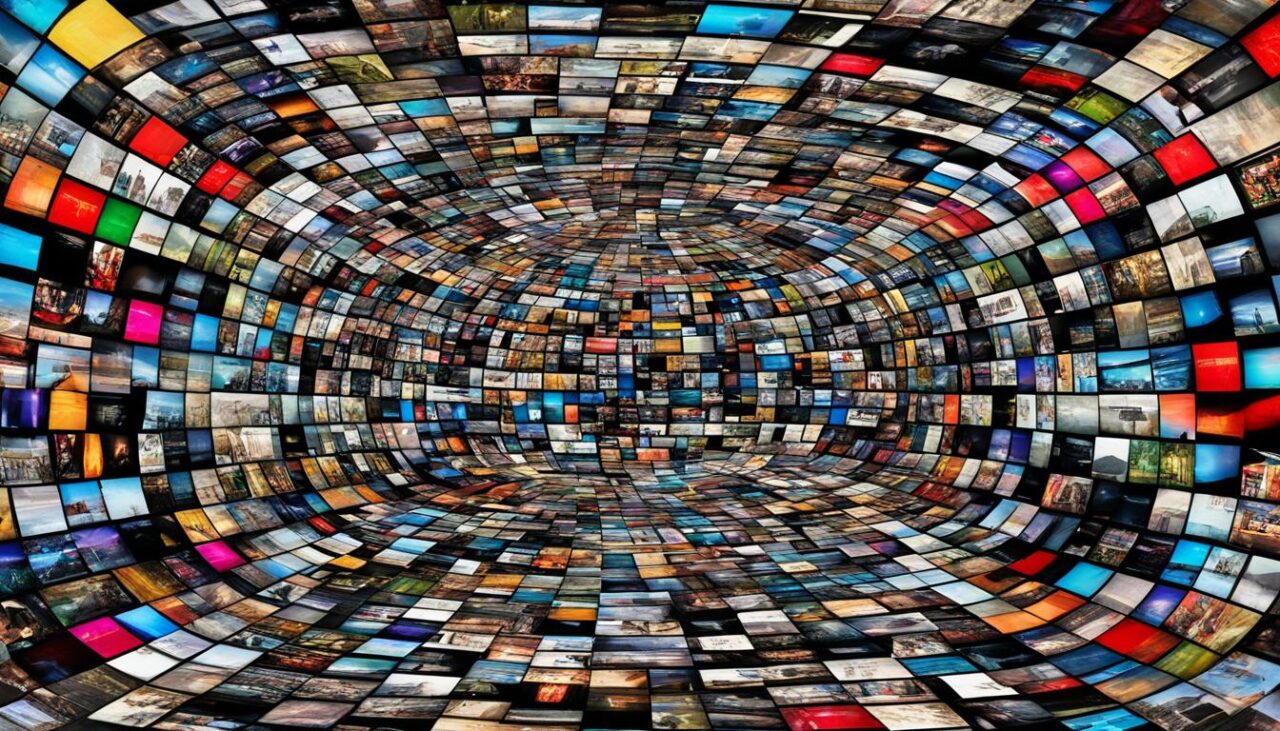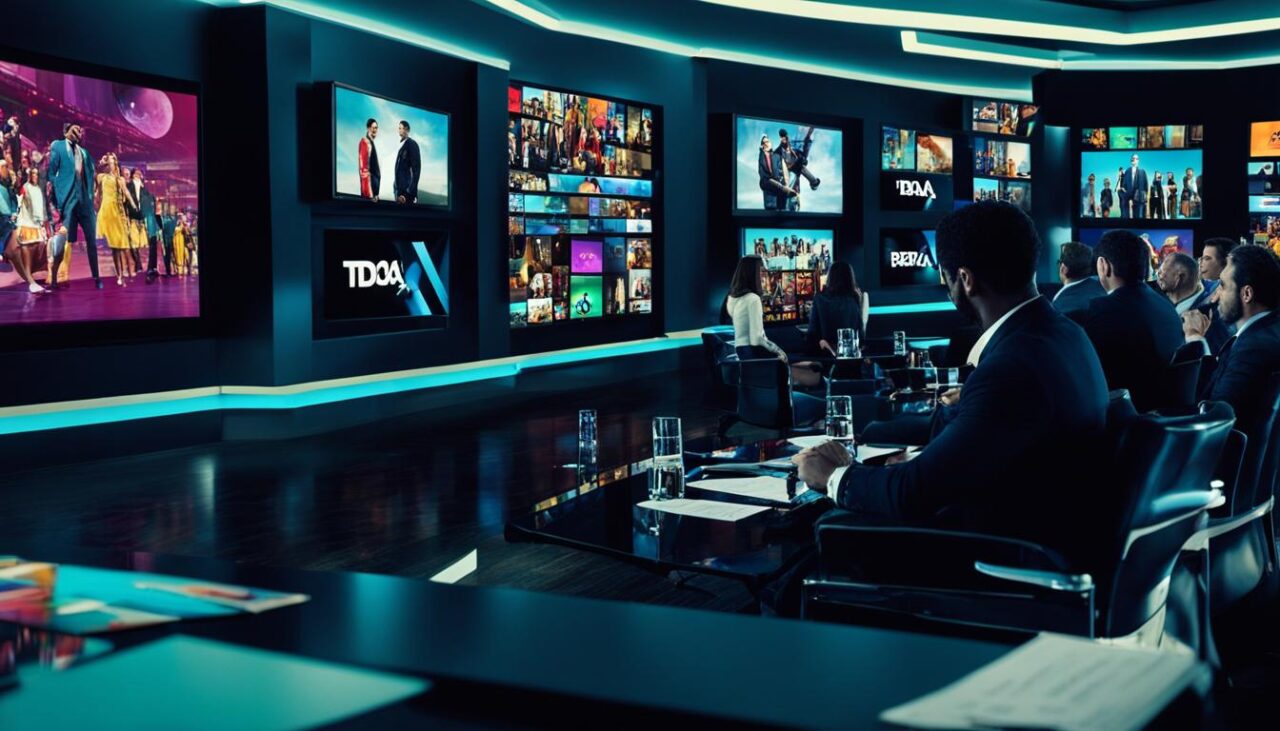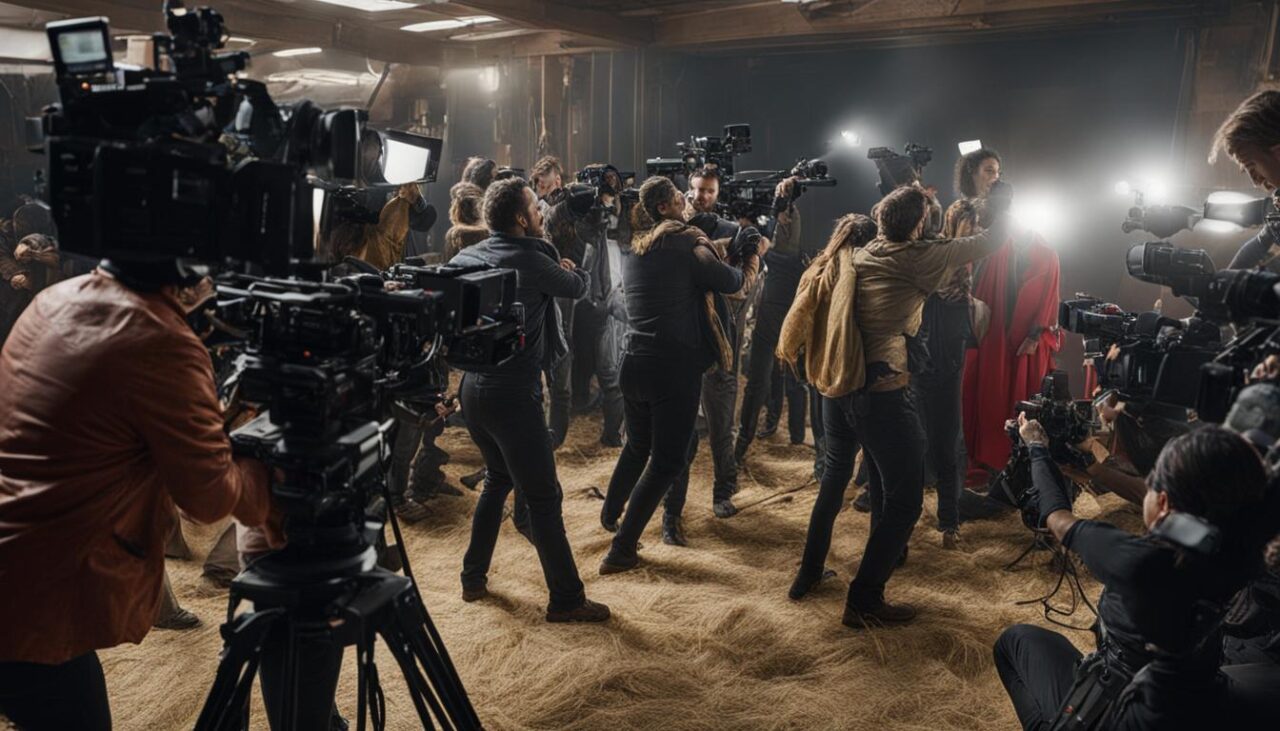In today's entertainment industry, reality TV has emerged not just as a genre, but as a cultural phenomenon that redefines television culture and impacts societies globally. These programs, transitioning from mere entertainment to a reflection of life as seen through an ever-present camera, have woven themselves into the fabric of modern entertainment. Amidst this transformation, they punctuate everyday conversation and color the norms of society.
The prevalence of reality television has sparked debates on authenticity, scripting, and the influence of the medium on behavioral expectations. It presents a double-edged sword, shaping and being shaped by the very culture it aims to depict. As reality TV continues to evolve, it blurs the lines further, challenging viewers to discern reality from crafted narrative, all while providing what many see as unfiltered access to diverse experiences and perspectives.
The ubiquity of these shows signifies not only a shift in viewer appetites but also highlights an underlying current that runs through the veins of the entertainment industry, driving engagement through a complex cocktail of drama, competition, and raw human emotion. This dynamic landscape suggests that reality TV will remain a cornerstone of media consumption for years to come, consistently influencing and reflecting the ebb and flow of cultural tides.
The Evolution of Reality TV in Modern Entertainment
As we trace the lineage of reality TV, we witness a transformative journey marked by innovative concepts that disrupted conventional programming and captivated audiences worldwide. This dynamic shift in the entertainment landscape was not immediate; it was the result of a gradual integration of reality elements that culminated in an enduring TV trend. Reality programmes, initially perceived as a novelty, have now firmly cemented themselves as a staple of modern entertainment.
The Birth of Reality Series and Their Pioneers
The inception of the reality series genre can be tracked back to earlier shows like Candid Camera and An American Family. However, it was the launch of Survivor in the early 2000s that truly heralded the age of competitive reality shows. Other major contributors to the genre's rise include Big Brother and The Real World, which introduced the concept of constant surveillance and real-time drama in the lives of ordinary people.
How Reality TV Redefined the Entertainment Industry
In disrupting the industry, reality TV redefined audience expectations and engagement. Shows like American Idol and Dancing with the Stars broke ground by allowing viewer participation through voting, making the audience a critical part of the show's outcome. The direct influence of the viewer not only changed the way programmes were consumed but also how they were crafted.

From Game Shows to Real-Life Drama: The Expansion of Reality Programmes
The expansion of the genre further blurred the lines between traditional game shows and reality television. While quiz shows like Jeopardy! and Wheel of Fortune maintained popularity, the appetite for unscripted, dramatized real-life scenarios skyrocketed. This shift gave rise to reality series that documented everything from the lives of suburban housewives in The Real Housewives franchise to the intense, professional kitchens in Hell's Kitchen. The proliferation of reality series across different sub-genres highlights the versatility and adaptability of reality programmes to meet evolving TV trends and viewer preferences.
The journey of reality television is a testament to not only its staying power but its ever-evolving nature. As reality shows continue to diversify and mirror the complexities of real life, their impact on tv trends and the entertainment industry at large is undeniable. They have, through their evolution, become an inextricable part of the cultural fabric, constantly offering fresh perspectives on the world and our place within it.
Reality Shows: Reflecting or Shaping Societal Norms?

The powerful reality tv impact on our daily lives often blurs the lines between entertainment and reality, making us question whether reality shows simply mirror society or actively participate in setting new standards. With each season, viewers are presented with scenarios that challenge pre-existing societal norms and subtly endorse new behaviors and attitudes.
As these shows continue to attract millions of viewers, they create an unrivaled platform that influences public dialogue around vital social issues. The allure of reality TV lies in its perceived authenticity; it presents real people facing real situations. However, the selective editing and production angles craft narratives that resonate with viewers, sometimes altering their perception regarding what's considered “normal”.
Reality television has the capacity to create, not just reflect, societal norms, implanting new ideas regarding lifestyle, success, morality, and relationships directly into the fabric of our social consciousness.
- Reality TV showcases diverse lifestyles, potentially democratizing what is deemed acceptable or aspirational within society.
- Characters and their stories on reality shows often challenge conventional stereotypes, influencing viewers' understanding and tolerance of different social dynamics.
- Reality programming can shift public opinion on pressing issues, as it brings them to the forefront of prime-time television.
While these shows provide entertainment, their pervasive reach and impact oblige us to consider the ethical boundaries and responsibilities that producers hold in shaping cultural norms. The overlap between reality TV and real-world consequences is undeniable. It fosters a realm where viewers may not just see a reflection of society, but become part of a seemingly continuous loop where television influences life, which in turn, influences television.
Television Culture: The Psychology Behind Reality TV Appeal
Reality television has woven itself into the fabric of modern culture, engendering a complex interplay between viewer psychology and television content. This genre has grown far beyond mere entertainment, affecting notions of celebrity and impacting societal norms on a grand scale. The intrinsic appeal of reality TV emerges from its ability to simultaneously offer relatable content and a platform for voyeurism, thereby captivating a wide audience and sustaining its popularity in television culture.

The Allure of Relatability and Voyeurism
The reality tv appeal often lies in its portrayal of authentic emotions and situations. Audiences find comfort in seeing others navigate life's trials and tribulations, which provides a sense of companionship and understanding. Further magnifying this appeal is the natural human inclination towards voyeurism; reality television satisfies a curious and sometimes covert interest in the lives of others, often present in its viewers.
Reality TV's Role in Celebrity Culture and Fandom
Celebrity culture has been inexorably altered by the rise of reality TV stars. Programs like Keeping Up with the Kardashians have demonstrated the power of reality television in providing an unprecedented level of access to the personal lives of celebrities. This, in turn, has fostered a new form of fandom, one that feels more intimate and direct than ever before, influencing not just television culture but also social media engagement and brand endorsements.
Critical Acclaim vs. Guilty Pleasures: The Diverse Reception of Reality Shows
While some reality shows achieve critical acclaim and herald significant reality tv impact, others are relegated to the status of guilty pleasures. Shows such as The Amazing Race receive praise for their production value and positive representation, while programs like Jersey Shore are consumed with a different, more indulgent mindset. The dichotomy in reception highlights the genre's multifaceted nature and its diverse impact on television culture.
Analyzing Reality TV Impact on Interpersonal Relationships
As we delve into the effects of reality television, it becomes imperative to analyze how this genre shapes perceptions of interpersonal dynamics. Reality series are more than just a source of entertainment; they serve as a mirror reflecting and sometimes shaping the constructs of social interaction in the modern world. This segment is dedicated to exploring the undercurrents of reality TV impact on the fabric of societal conduct and personal relationships.
The Role of Reality TV in Shaping Perceptions of Relationships
The portrayal of relationships in reality series can sometimes set unrealistic standards for viewers. With an emphasis on heightened drama and emotional entanglements, reality TV can skew expectations, suggesting that intense conflict and tumultuous reconciliations are the norms. Such depictions can potentially cloud judgment, influencing viewers to cultivate similar expectations in their life, thus impacting interpersonal relationships in a significant manner.
Conflict Resolution on Screen: Educational or Detrimental?
When on-screen personalities navigate disputes, these instances can hold educational value by exposing the audience to diverse problem-solving techniques. However, the over-dramatization common in reality television often emphasizes confrontation over resolution, which might inadvertently endorse negative patterns of behavior. It becomes crucial to discern whether audiences are internalizing constructive conduct or if they are being submerged into dramatic but detrimental representations of conflict resolution.
Mimicry and Influence: How Viewers Internalize TV Behaviors
The psychological phenomenon of mimicry is evident when viewers subconsciously adopt the behaviors and mannerisms showcased in reality series. The impact of reality TV is notable as it infiltrates daily interactions, suggesting that the line between on-screen and off-screen can become blurred for avid watchers. This subtle influence underscores the persuasive power of reality television and its ability to mold not only perceptions but actual behaviors within the sphere of interpersonal relationships.

